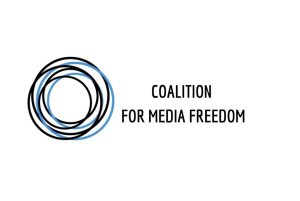“Collective bargaining for freelancers” was the topic of the second ‘Stand up for Journalism’ workshop organised by the European Federation of Journalists (EFJ) and the French journalists’ union SNJ-CGT in Vichy, France, on 23-24 January 2025. Thirty-six union representatives and journalists discussed the challenges specific to the self-employed, such as collective negotiations, copyright, and the European legal frameworks.
Freelance journalists are no longer an exception in the media landscape in Europe and many unions that were previously unable to represent them have changed their rules to enable them to do so. Participants have expressed that freelancer is less and less a status “by default”. In Denmark, a recent survey showed that 80% of the freelance journalists are freelance by choice. Yet this status can lead to precarious situations and the tariffs have not been increased like that of staff journalists. Journalists’ unions are therefore expected to address the growing presence of the self-employed in journalism.
The EU does provide some legal instruments to self-employed workers through the Guidelines on collective agreements by solo self-employed people, which were adopted in 2022. These Guidelines established that freelance journalists have the right to be included in collective bargaining, as previously this was considered to be a form of cartel.
The participants were joined by European Commission Senior Expert in Working Conditions and Social Dialogue, Marie Lagarrigue, to discuss bogus self-employment and other issues of freelance journalists’ working conditions in Europe.
In the Netherlands, the fiscal authorities will start giving fines for bogus self-employment next year, as they gave a year to the industry players to level the situation. Some people went into an employment situation because of this, however most remained freelancers.
But some employers are still not willing to bargain and union representatives shared their challenges in negotiating and reaching agreements.
The workshop was also an opportunity to share successful union actions for better working conditions for freelancers. In France, freelance journalist and unionist Baptiste Cessieux recalled how SNJ-CGT planned for three years a two-month strike to obtain a 2% raise. In Belgium, staff and freelance journalists at the French-speaking public service media RTBF presented a united front to improve the conditions of the freelance journalists’ contracts, and successfully improved the situation.
AI was also a topic of interest, since its application in journalism already have concrete impact on journalists’ employment, remuneration and practices. Laurens Vreekamp, journalist and trainer at NVJ Academy, presented the bad and the good sides of artificial intelligence in the news sector. He emphasised the drawbacks of AI, like its tendency to recreate societal bias and the lack of transparency regarding its training. He also introduced several AI-based resources and apps that could make the journalists’ job much easier, like teachable video analysis or writing assistance tools.
The workshop also provided the opportunity to unveil the first Declaration of freelance journalists in Europe, a working document that sets out the necessary measures to ensure fair working conditions, equal treatment and suitable livelihoods for freelance journalists across Europe. It was presented to MEP Leila Chaibi (GUE/NGL, France), who had led the creation of the Platform Workers Directive in the previous legislative period. She shared practical steps for advancing EU legislation to protect freelance journalists and outlined strategies for launching a Europe-wide campaign.
“I think we are on the right track by connecting the challenges we all experience in our countries with European policy. I am very pleased by the formulation of the working document that summarises all our work in the FREG in the recent past. It inspires us to push our agenda forward,” said Renske Heddema, Co-Chair of the EFJ Freelance Expert Group (FREG).
Stand Up for Journalism is a 18-month project led by the EFJ and implemented with its partners: Independent Journalists’ Association – NUNS (Serbia), Trade Union of Media of Montenegro – TUMM (Montenegro), Danish Journalists’ Union – DJ (Denmark), Turkish Journalists’ Union – TGS (Turkey), Syndicat National des Journalistes – SNJ-CGT (France) and Association des Journalistes Professionnels – AJP (Belgium)
T![]() his project is co-funded by the European Union. Views and opinions expressed are however those of the author(s) only and do not necessarily reflect those of the European Union. Neither the European Union nor the granting authority can be held responsible for them.
his project is co-funded by the European Union. Views and opinions expressed are however those of the author(s) only and do not necessarily reflect those of the European Union. Neither the European Union nor the granting authority can be held responsible for them.
Source: EFJ




